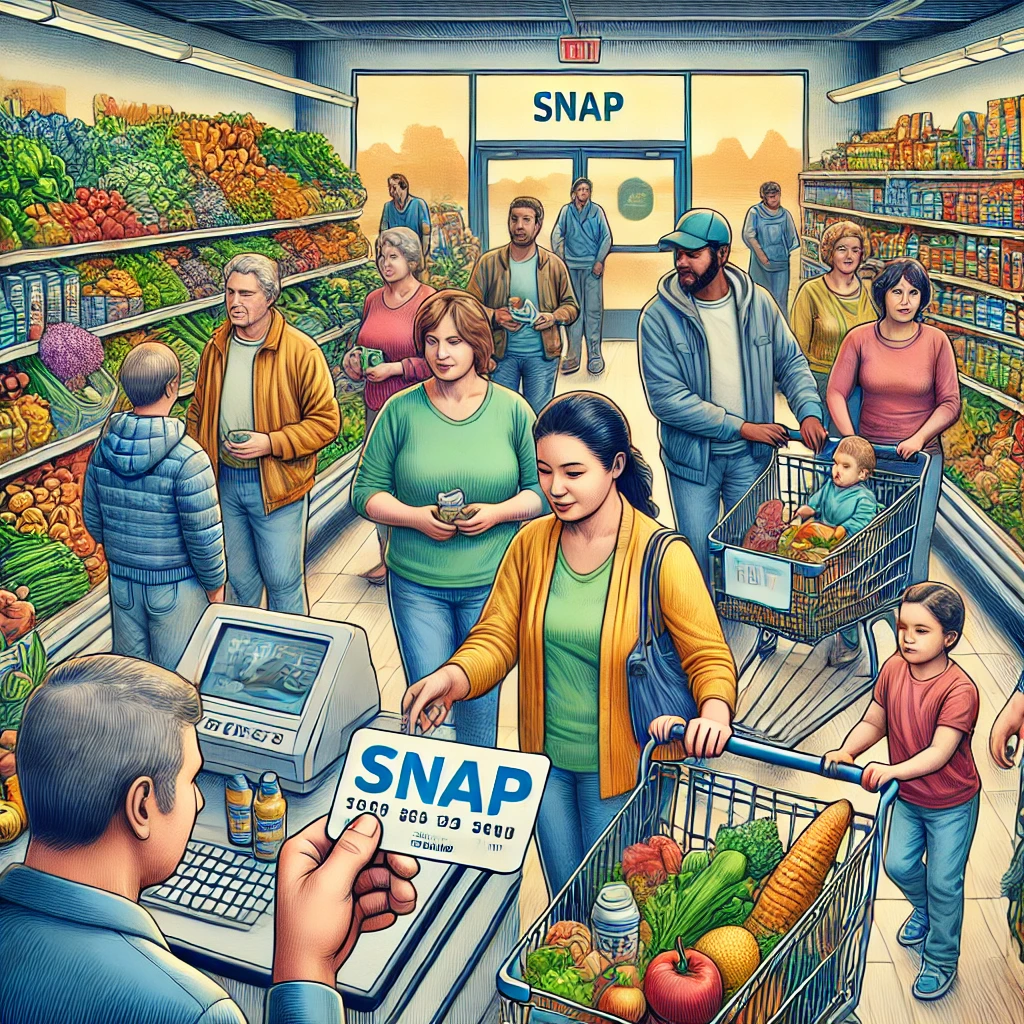FOOD STAMPS is a food assistance program designed to help low-income individuals in the United States. It might be hard for some people from outside the country to imagine, but even a first-world nation faces social inequality and socioeconomic vulnerability. For this reason, social programs are developed to address the basic needs of these individuals and to alleviate the challenges found in society. Therefore, today we will take a more comprehensive look at FOOD STAMPS, answer some common questions, and finally, show you how to enroll in the program. Curious? Then read on until the end. Everything you need is right here.

How do Food Stamps work?
You might know it as FOOD STAMPS or perhaps as the Supplemental Nutrition Assistance Program (SNAP). This is a type of family assistance designed specifically to support low-income individuals in the United States, helping them access nutritious foods and promoting food security policies in the country. Each month, a benefit is provided to be used for purchasing food at establishments across the country. Beneficiaries must use the EBT card (Electronic Benefit Transfer), a debit card that is exclusive to program beneficiaries. But be aware: this benefit is for purchasing nutritious foods and cannot be used to buy alcohol, cigarettes, vitamins, medications, or anything of that sort.
How do I get in touch with the team responsible, i.e. which offices and what is the food stamp number?
If you need more information about the program or have a very specific question, you can contact SNAP directly through their customer service line at the FOOD STAMPS number 1-800-221-5689, or you can visit one of the FOOD STAMPS offices, preferably the one closest to your address. If you have difficulty finding the location and need in-person assistance, call the number mentioned to obtain this information.
Common questions: Do food stamps cover formulas and pedialyte?
As we mentioned above, FOOD STAMPS cover nutritional foods necessary for the health of its beneficiaries. Therefore, we can affirm that FOOD STAMPS also cover infant formula and Pedialyte. This is because the former is considered essential for babies, and the latter is classified as a nutritional item with significant importance in preventing dehydration. However, we recommend that when you contact SNAP, you ask them this question, as acceptance of these items may vary in some regions.
Finally, how do I apply for food stamps?
It’s important to note that each state has its own requirements that determine eligibility for FOOD STAMPS, so this needs to be reviewed. As mentioned above, you can contact the SNAP offices to get more information, and this contact is crucial for enrolling in SNAP. When you call the number mentioned, ask for the address of the nearest office to you. Also, keep in mind that in some cases, an interview may be required to assess eligibility for the program.
Finally, regardless of your state, all of them issue the EBT card, and this card comes preloaded with the appropriate balance to be used for purchasing food. If you want to keep checking your balance, you can do so by reviewing your purchase receipts at the stores, your state may provide a digital app for you to manage your expenses, or you can stay in touch with SNAP to keep track of your balance.
If you find that you do not meet the program’s requirements in your state or if you apply but are not approved, don’t worry, because there are other government benefits you can also try for. We recommend that you keep following our content to stay updated on all the offers and news, and also keep an eye on the official website of the United States government.
Regarding FOOD STAMPS, if you want more information, there is a specific page that covers the topic in detail. In any case, you can request help from a social worker for personalized assistance and to advocate for your rights. This way, you can stay informed about public policies through the guidance and work of a professional specialized in the field. If none of these alternatives seem favorable to you, consider looking for a private social initiative. This can be a great option when the government falls short.
You will be redirected to the official website